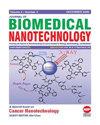Lotus Seedpod Oligomeric Procyanidin Nanoliposomes Targeting TLR4/NF-κB Reduce Inflammation and Oxidative Stress in Patients with Traumatic Brain Injury
IF 2.9
4区 医学
Q1 Medicine
引用次数: 0
Abstract
The inflammatory-immune response secondary to nerve injury is an important mechanism for craniocerebral injury. Procyanidins from lotus seedpods (LSPCs) are one of the main active ingredients isolated from the mature receptacles of the Nymphaeaceae family lotus plant. LSPCs exhibit strong free radical scavenging and antioxidant activities. The objective of this study was to determine the effects of LSPC nanoliposomes on traumatic brain injury (TBI). In a TBI rat model, LSPC nanoliposomes were injected intraperitoneally. Inflammatory factors and oxidative stress molecules were detected with ELISAs and RT-PCR. The TLR4/NF- κ B signaling pathway was explored using Western blotting. The modified neurological severity scores (mNSS) increased in the TBI group compared with the scores in the Sham group. The water maze test indicated latency in finding the platform was prolonged and staying time in the platform quadrant and the number of times crossing the platform were reduced in the TBI group. Treatment with LSPCs significantly reduced the mNSS scores in rats with TBI and significantly reduced the time to find the platform, increased the residence time in the platform quadrant, and increased the frequency of crossing the platform during the water maze test. In addition, brain edema was reduced in rats with TBI after intraperitoneal injection of LSPCs. Iba-1, IL-1 β , IL-6, and TNF- α levels were reduced after intraperitoneal injection of LSPCs. MDA levels were also reduced, while GSH-Px and SOD levels increased. After intraperitoneal injection of LSPCs, TLR4, MyD88, and pNF- κ B p65 were significantly attenuated. Activation of TLR4 prevented the protective effects of LCPCs in rats with TBI. The results of this study demonstrate that LSPCs attenuate activation of the TLR4/NF- κ B pathway in rats with TBI, thereby reducing microglia activation, inflammation, and oxidative stress.靶向TLR4/NF-κB的莲荚低聚原花青素纳米脂质体减少创伤性脑损伤患者的炎症和氧化应激
神经损伤后的炎症免疫反应是颅脑损伤的重要机制。莲荚原花青素是从莲科植物莲花成熟花托中分离得到的主要活性成分之一。LSPCs具有较强的自由基清除和抗氧化活性。本研究的目的是确定LSPC纳米脂质体对创伤性脑损伤(TBI)的影响。在脑外伤大鼠模型中,腹腔注射LSPC纳米脂质体。采用elisa和RT-PCR检测炎症因子和氧化应激分子。Western blotting检测TLR4/NF- κ B信号通路。与假手术组相比,TBI组改良神经系统严重程度评分(mNSS)升高。水迷宫实验结果显示,脑外伤组大鼠寻找平台的潜伏期延长,在平台象限的停留时间和穿越平台的次数减少。LSPCs治疗显著降低了脑外伤大鼠的mNSS评分,显著缩短了寻找平台的时间,增加了在平台象限的停留时间,增加了水迷宫测试中穿越平台的频率。此外,腹腔注射LSPCs后,TBI大鼠脑水肿减轻。腹腔注射LSPCs后,小鼠Iba-1、IL-1 β、IL-6、TNF- α水平明显降低。MDA水平降低,GSH-Px和SOD水平升高。腹腔注射LSPCs后,TLR4、MyD88、pNF- κ B p65明显减弱。TLR4的激活阻止了lcpc对脑外伤大鼠的保护作用。本研究结果表明,LSPCs可减弱TBI大鼠TLR4/NF- κ B通路的激活,从而减少小胶质细胞的激活、炎症和氧化应激。
本文章由计算机程序翻译,如有差异,请以英文原文为准。
求助全文
约1分钟内获得全文
求助全文
来源期刊
CiteScore
4.30
自引率
17.20%
发文量
145
审稿时长
2.3 months
期刊介绍:
Information not localized

 求助内容:
求助内容: 应助结果提醒方式:
应助结果提醒方式:


